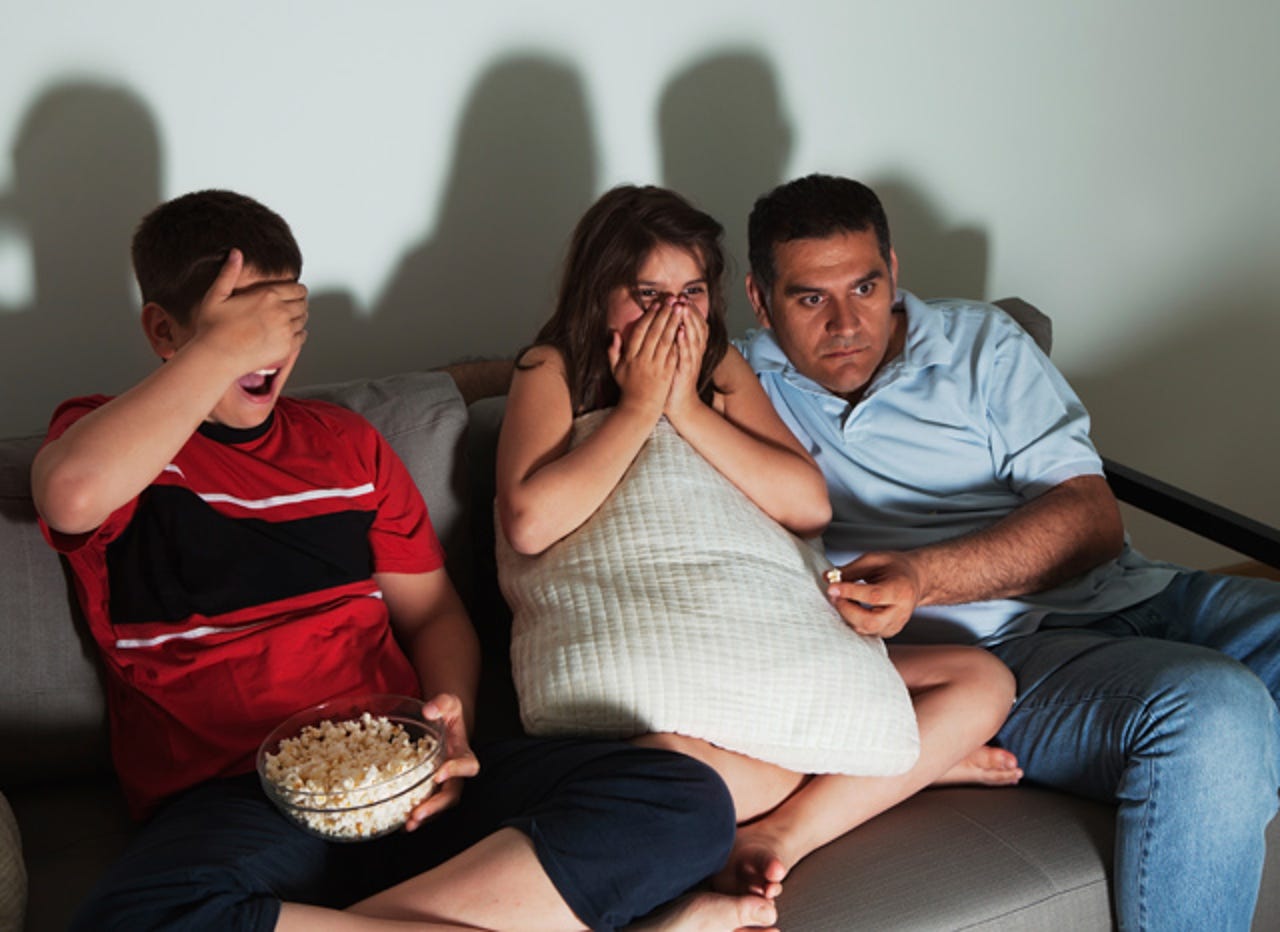Cable TV may be doomed, but cable companies continue to rule


We watched one episode of Once Upon a Time (leftover, on the TiVo), two episodes of Treehouse Masters (Hulu), two episodes of Tracks Ahead (Hulu), and one episode of The Roosevelts (Amazon).
We did not touch our brand-new HBO Now account (we didn't have time to watch the Game of Thrones season premiere), and didn't fire up Netflix all week.
Since we save about $174 a month, that means we saved about $43.50 this week. It sure didn't feel like we were deprived.
Based, at least on our first week's experience, it doesn't look like we'll be signing back up for cable TV service (or TiVo).
But that doesn't mean we didn't use the heck out of service from Bright House, our cable provider. After the unbundling, we spend about $116/mo on high-speed Internet (150 down, 10 up). A big part of that buy is I need the 10 Mbps upload bandwidth for work, so normal folks could probably get away with a considerably lower Internet bill
But maybe not. Cable TV providers (which we probably should start calling "cable service providers") are finding that as people stream more and more video, they buy fatter pipes, which means consumers are still buying services from the cable companies, just different services.
You might think that if the cable companies can't sell you TV services, they're going to roll up their wires and go home. That's certainly been their attitude over the years as consumers have pushed for unbundled services.
But we're not seeing that in their behavior. In terms of their aggressiveness in going after the broadband-only market, cable providers are showing that they certainly seem to think selling us bandwidth is a lucrative business.
My ZDNet colleague Zack Whittaker did a piece this week on some interesting behavior in the Carolinas. No, we're not talking about banjos, grits, and the best barbecue on the planet. Instead, he reported on how some traditional cable providers are responding to Google Fiber coming to town.
Time Warner Cable is offering a souped up service and AT&T is also now offering a very high-end performance package to those in the communities where Google Fiber has been announced -- but not yet installed. In addition to offering an extra fat pipe to consumers, both TWC and AT&T are making that offer at no additional charge over their normal service fees.
In other words, they're fighting for customer retention early in the game. This clearly indicated that rather than wanting to jettison those of us who only buy the good stuff (bandwidth, Baby!), they're going after Internet bandwidth buyers with vigor.
This can be seen elsewhere as well. A few months ago, USA Today reported about a rather amazing deal being offered by AT&T. Details are sketchy about where the deal could be found and how long it would be for (you can bet there's some fine print), but it was still pretty insane.
The company was offering basic cable, broadband, HBO, and a year of Amazon Prime, all for $39 per month. I haven't found any details about the bandwidth provided for that offering, but still -- you can see how aggressive AT&T has become in trying to attract the uncorded.
Does this mean the future is bright for Internet users?
Of course not. We're talking communications companies here. There is certainly a goal of retaining traditional appointment-TV subscribers and attracting cord cutters with bandwidth. So it seems there is enough profit in bandwidth-only offerings to keep generating growth.
But you know that these companies will do something heinous at various times. Expect "unlimited bandwidth" with bandwidth caps or throttling. Expect wildly good retention deals only to discover huge fees or later jumps in monthly pricing.
Expect ongoing fights to retain what is essentially monopoly status in most communities. Expect battles to prevent community free WiFi. Expect wacked out regulations fueled by lobbyists flinging cash and promises.
And, of course, expect intermittent crappy service. The night of the day I published my cord cutting article, my download bandwidth dropped from 150 Mbps to 1.2 Mbps, even though my upload bandwidth remained rock solid.
I initially thought that Bright House was "getting even" for my article (no, I'm not paranoid: other articles have resulted in some really interesting responses by their subjects). But a visit to Twitter let me know that a lot of users were simply having terrible service.
And that, right there, is the problem with cord cutting and our Internet economy in general: we're dependent on service providers. Whether the pipes are physical like cable or DSL or wireless, like 4G, we are completely dependent on AT&T, Verizon, Comcast, Cablevision, Bright House, and the like.
Don't expect government to protect you from abuse, because legislators have a long history of siding with anti-consumer plans (SOPA, anyone) and their lobbyist buddies.
Bottom line: my wife and I are happy to save a few bucks, but we harbor no illusions about the behavior of some of the most unpleasant companies any of us ever deal with: the content rights owners and the last-mile service providers.
It will be a bumpy road: not because it needs to be, but because the companies we buy our services from never, ever put the consumer experience first.
Hmmm... maybe Apple and Google do have a fair chance of redefining the broadband and TV markets. They, at least, have a long history of understanding consumer experience is good for profits.
By the way, I'm doing more updates on Twitter and Facebook than ever before. Be sure to follow me on Twitter at @DavidGewirtz and on Facebook at Facebook.com/DavidGewirtz.
Featured